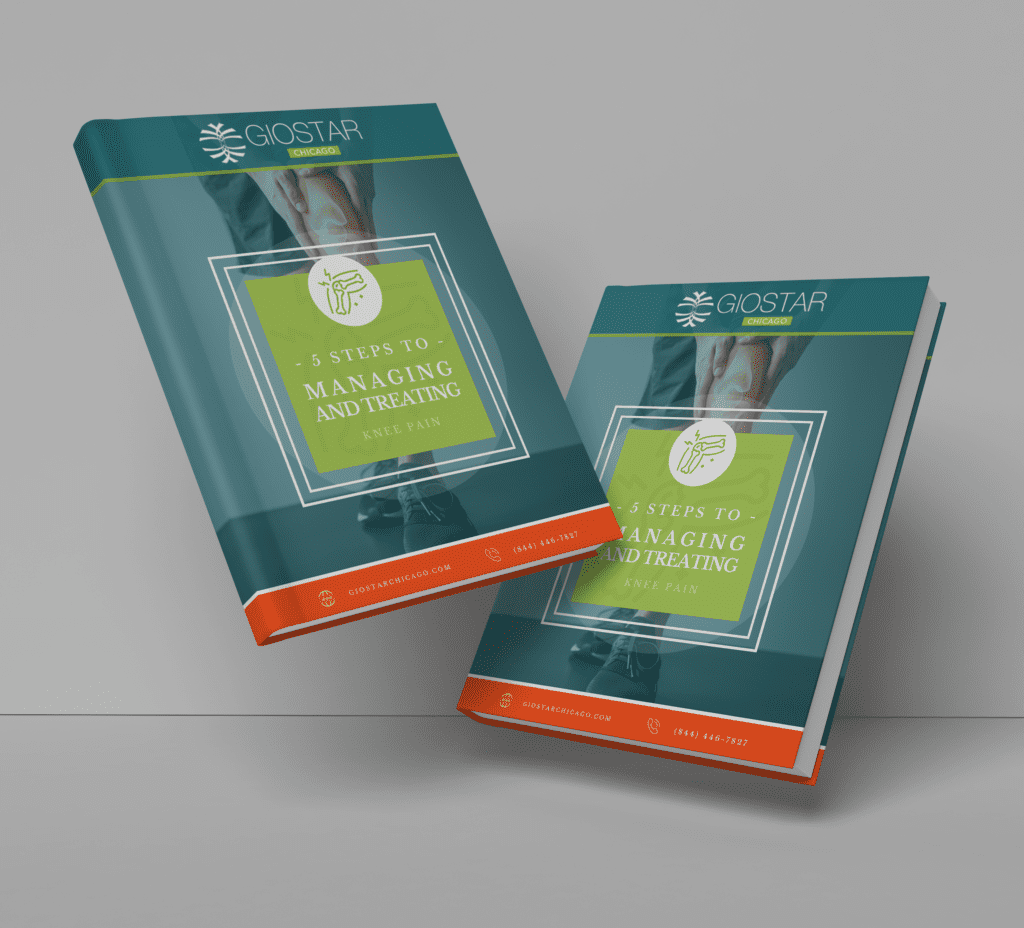Knee replacement surgery has the potential to improve your mobility, reduce pain, and enhance your overall quality of life. However, the journey to a successful recovery doesn’t end with the operation itself. To ensure the best outcomes, it’s crucial to be aware of the top 5 mistakes after knee replacement that can hinder your progress and delay your return to an active lifestyle.
It’s also important to be aware of the alternatives to knee replacement surgery. Imagine a treatment option that could help you avoid the risks and challenges associated with invasive procedures. Enter stem cell therapy — a promising alternative that harnesses your body’s own regenerative power to heal and repair damaged tissues.
Let’s delve into the top 5 mistakes that many individuals make after knee replacement surgery, and look into stem cell therapy as a preventive approach to healing. By understanding and avoiding these pitfalls, and learning more about holistic healing options, you can optimize your recovery process and regain functionality faster.
Get an Appointment
Complete The Form Below And We’ll Get Back To You Immediately.
Sign Up And Enjoy the Free Ebook, '5 Steps To Managing and Treating Your Knee Pain Today!
When patients visit our clinic, our doctors recommend they do all of these things to alleviate their symptoms. Right now, you can download the ebook for free to learn more about how to start changing your habits and improve your condition. It costs nothing, and you’ll get it delivered to your inbox immediately.

The Top 5 Mistakes After Knee Replacement
1. Doing Too Much Too Soon: The Importance of Gradual Rehabilitation
After undergoing knee replacement surgery, it’s essential to approach your rehabilitation with a mindset of patience and gradual progression. While it’s natural to feel eager to regain mobility quickly, it’s crucial to understand the importance of taking it slow so you avoid the top 5 mistakes after knee replacement.
Your knee joint needs time to heal and adapt to the new prosthetic implant. Rushing into strenuous activities or putting excessive stress on your knee too soon can disrupt the healing process and potentially lead to complications. By allowing your body the necessary time to repair tissues, reduce swelling, and strengthen surrounding muscles, you provide a solid foundation for a successful recovery.
Building strength in the muscles around your knee is a crucial aspect of rehabilitation, but it should be done gradually. Starting with gentle exercises and gradually increasing the intensity allows your muscles and joints to adapt and strengthen without strain or potential injury. Remember, it’s a gradual process, and rushing into intense workouts or weight-bearing activities before your body is ready can hinder progress and even set you back.
By respecting the healing process, gradually increasing activity levels, and prioritizing rest, you can optimize your rehabilitation after knee replacement surgery. Remember that each individual’s recovery journey is unique, so consult with your healthcare team for personalized advice and guidance throughout the process.
2. Neglecting an Active Lifestyle: Maintaining Mobility and Strength
After knee replacement surgery, maintaining an active lifestyle is crucial for mobility, strength, and overall well-being. Regular exercise promotes joint health by improving circulation and nourishing the tissues around the knee. It aids in healing, reduces stiffness, and enhances flexibility. Additionally, staying active helps manage weight, strengthens muscles, boosts energy levels, improves mood, and promotes better sleep quality.
It’s important to gradually reintroduce physical activities as guided by healthcare professionals, starting with gentle exercises so you don’t accidentally partake in the top 5 mistakes after knee replacement. By embracing a balanced exercise regimen, you can optimize recovery, preserve joint health, and enhance your overall well-being.
3. Ignoring Inflammation: Managing Joint Swelling and Pain
Ignoring inflammation after knee replacement surgery is one of the top 5 mistakes after knee replacement and can significantly hinder your recovery progress and contribute to prolonged discomfort. It’s crucial to address and manage inflammation to promote healing and reduce swelling. Inflammation is a natural response of your body to injury or surgery. While it’s a part of your healing process, excessive or prolonged inflammation can impede recovery. Uncontrolled inflammation can cause increased pain, swelling, and stiffness in your knee joint, which can limit mobility and slow down your rehabilitation progress.
Here are some basic steps you can take to reduce your inflammation:
- Proper medication
- Icing for swelling reduction
- Elevation
- Compression
- Gentle range of motion exercises
A 2019 study published in Pain Research and Management aimed to compare the effects of adding intermittent pneumatic compression to conventional treatment versus cold-pack therapy in patients with knee osteoarthritis. The results showed significant improvements in range of motion, muscle strength, and pain intensity in both groups. However, the group receiving intermittent pneumatic compression demonstrated superior outcomes in terms of reducing knee swelling compared to the cold-pack therapy group. These findings suggest that incorporating intermittent pneumatic compression therapy into conventional treatment can help reduce inflammation for osteoarthritis patients and may be more effective in reducing knee swelling compared to cold-pack therapy.
By actively managing inflammation through medication, icing, elevation, compression, and appropriate exercises, you can effectively reduce swelling and discomfort post-knee replacement surgery.
4. Disregarding Long-Term Risks: Potential Complications of Knee Replacement
Disregarding the long-term risks associated with knee replacement surgery can have serious implications and is one of the top 5 mistakes after knee replacement. Complications such as infection, implant loosening, blood clots, nerve or blood vessel damage, and allergic reactions should not be overlooked. Staying vigilant and informed about these potential risks is crucial. Promptly reporting any unusual symptoms, following post-operative instructions, attending regular check-ups, and practicing proper wound care can help mitigate these risks. By actively engaging in your recovery and maintaining open communication with your healthcare team, you can take necessary precautions and address any complications that may arise, ensuring the best possible outcome from your knee replacement surgery.
5. Skipping Physical Therapy: The Vital Role of Rehabilitation
Skipping physical therapy after knee replacement surgery can significantly hinder your recovery and long-term outcomes. Studies show that physical therapy should begin within 24 hours of knee surgery (specifically a total knee arthroplasty) for optimal results.
Physical therapy plays a vital role in the rehabilitation process by promoting mobility, strength, and overall recovery. By following a prescribed physical therapy regimen, you can optimize your joint function, regain range of motion, and rebuild muscle strength while avoiding the top 5 mistakes after knee replacement.
Physical therapists are trained to assess your specific needs and develop personalized exercises and techniques to address your unique challenges. Regular therapy sessions help you gradually progress through exercises, improve balance, and regain functional independence. Don’t underestimate the importance of physical therapy in your recovery journey—it is a key component in achieving optimal results after knee replacement surgery.
Alternative Approach: Exploring Stem Cell Therapy as a Non-Surgical Option
In recent years, stem cell therapy has emerged as a promising alternative to knee replacement surgery. This non-surgical approach harnesses the regenerative properties of stem cells to promote healing and alleviate joint pain. Stem cells have the remarkable ability to transform into different types of cells, including those found in cartilage and connective tissue. By injecting stem cells directly into the affected knee joint, this therapy aims to stimulate the body’s natural healing processes.
A recent 2022 study published in Regenerative Medicine concluded that “stem cell therapy is an effective, safe and long-lasting treatment for knee osteoarthritis and greatly reduces knee pain and improves the function of the knee.”
Stem cell therapy offers potential benefits such as reduced inflammation, improved tissue regeneration, and enhanced joint function. Exploring stem cell therapy as an alternative to knee replacement is an exciting avenue worth considering for individuals seeking non-invasive treatment options.
Contact GIOSTAR Chicago Today for Stem Cell Therapy for Knees
Are you considering stem cell therapy for your knee-related concerns? Look no further than GIOSTAR Chicago—a world leader in regenerative medicine. When it comes to your health, you deserve the best, and GIOSTAR Chicago delivers just that. Our team of highly skilled medical professionals and researchers possesses extensive experience in the field of stem cell therapy. With our deep understanding of regenerative medicine, we can provide personalized and effective treatments for your knee issues.
At GIOSTAR Chicago, cutting-edge technology is at the heart of our approach. We stay up-to-date with the latest advancements in stem cell research, ensuring that you receive the most innovative therapies available. From a comprehensive evaluation that considers your medical history, physical examination, and diagnostic testing, we tailor treatment plans to meet your unique needs and conditions. Your well-being is our top priority, and we adhere to strict safety and ethical standards throughout the treatment process.
Give yourself the opportunity to explore the possibilities of regenerative therapy and embark on a journey towards improved knee health. Your health matters, and we’re here to support you along the way.
Contact us today by completing this form or calling us at 844 446 7827 to learn more about our stem cell therapy for knees.
About GIOSTAR Chicago:
GIOSTAR Chicago is dedicated to developing the most advanced stem cell-based technologies and providing the best regenerative medicine for people who want to enjoy a healthy and active lifestyle.


